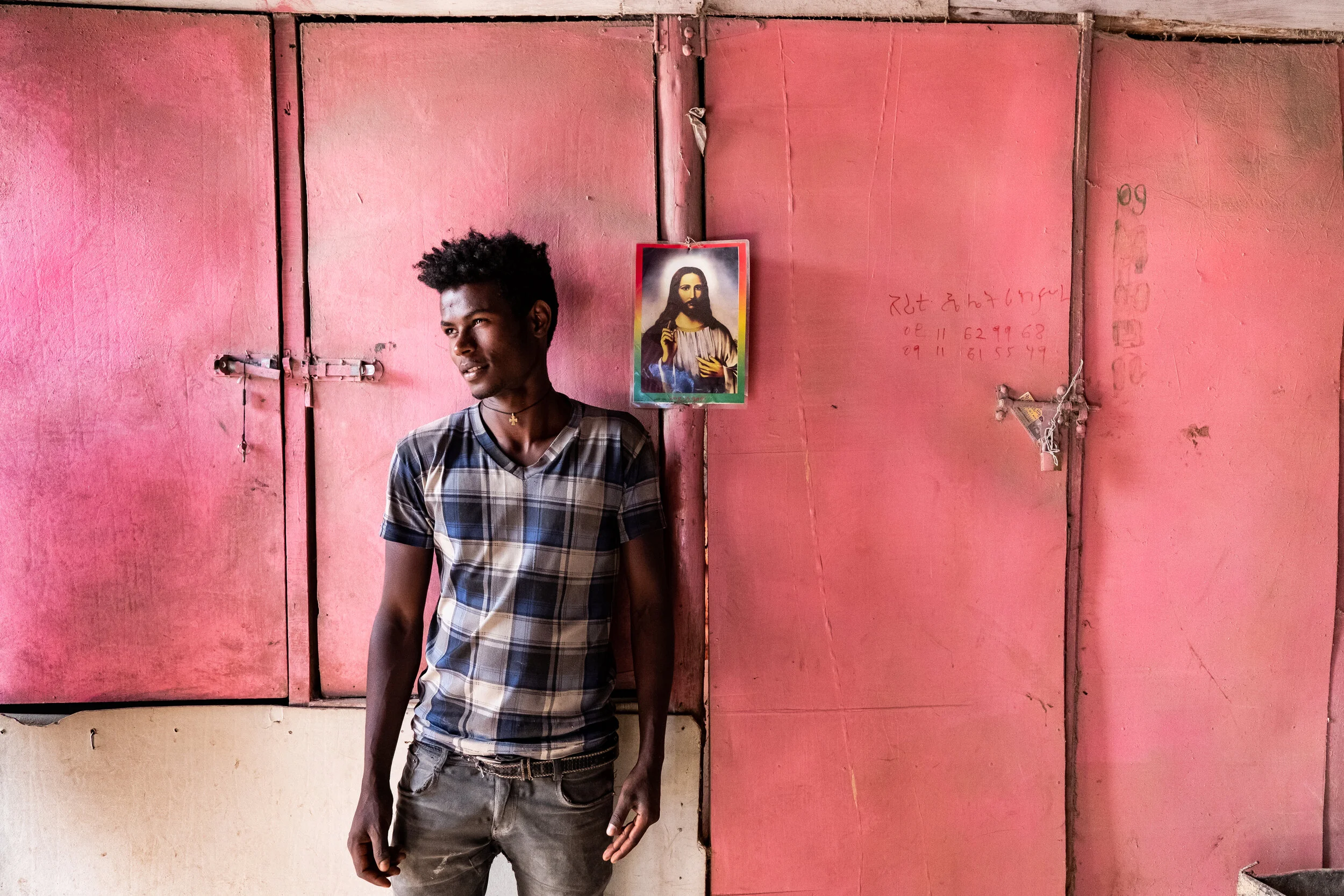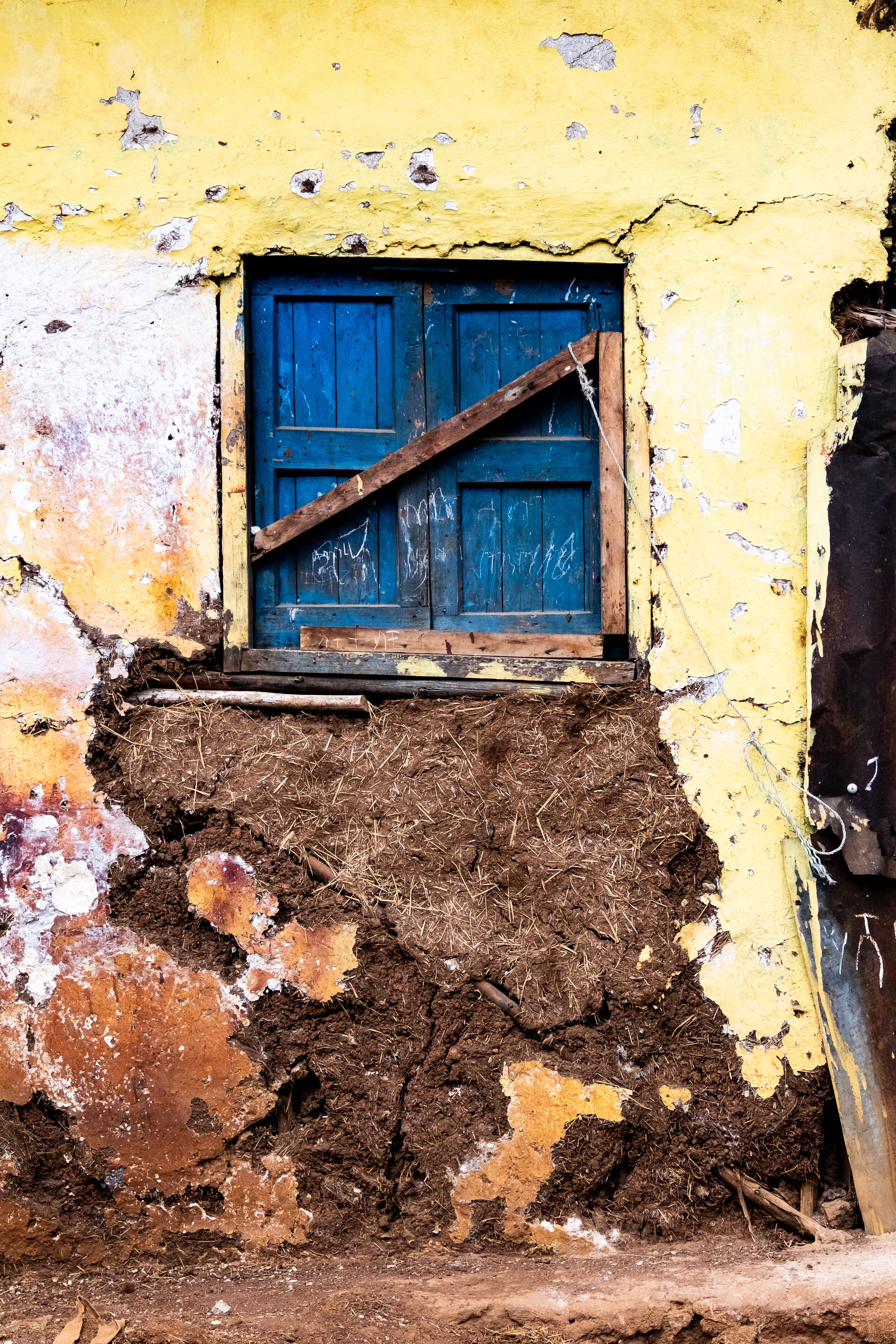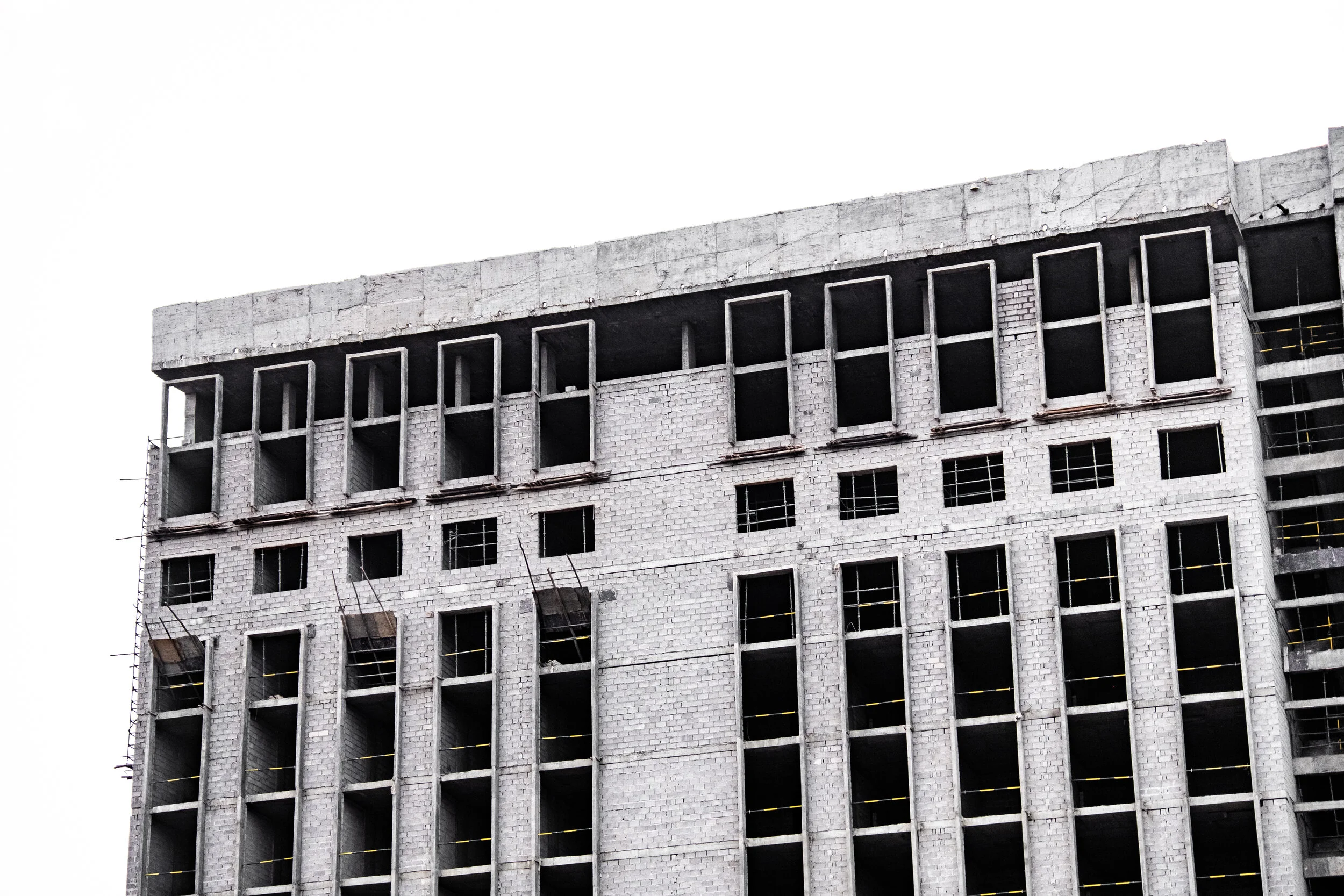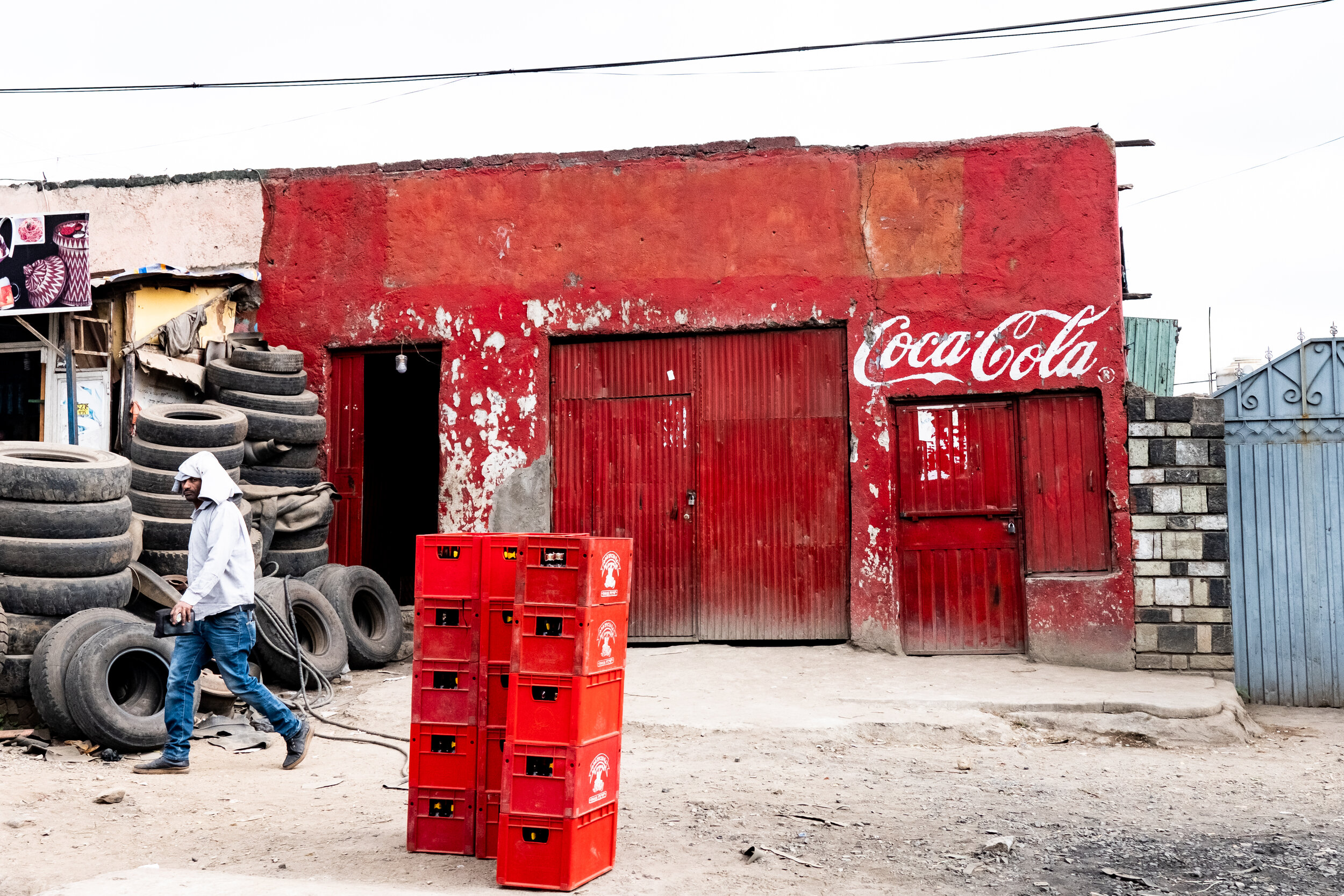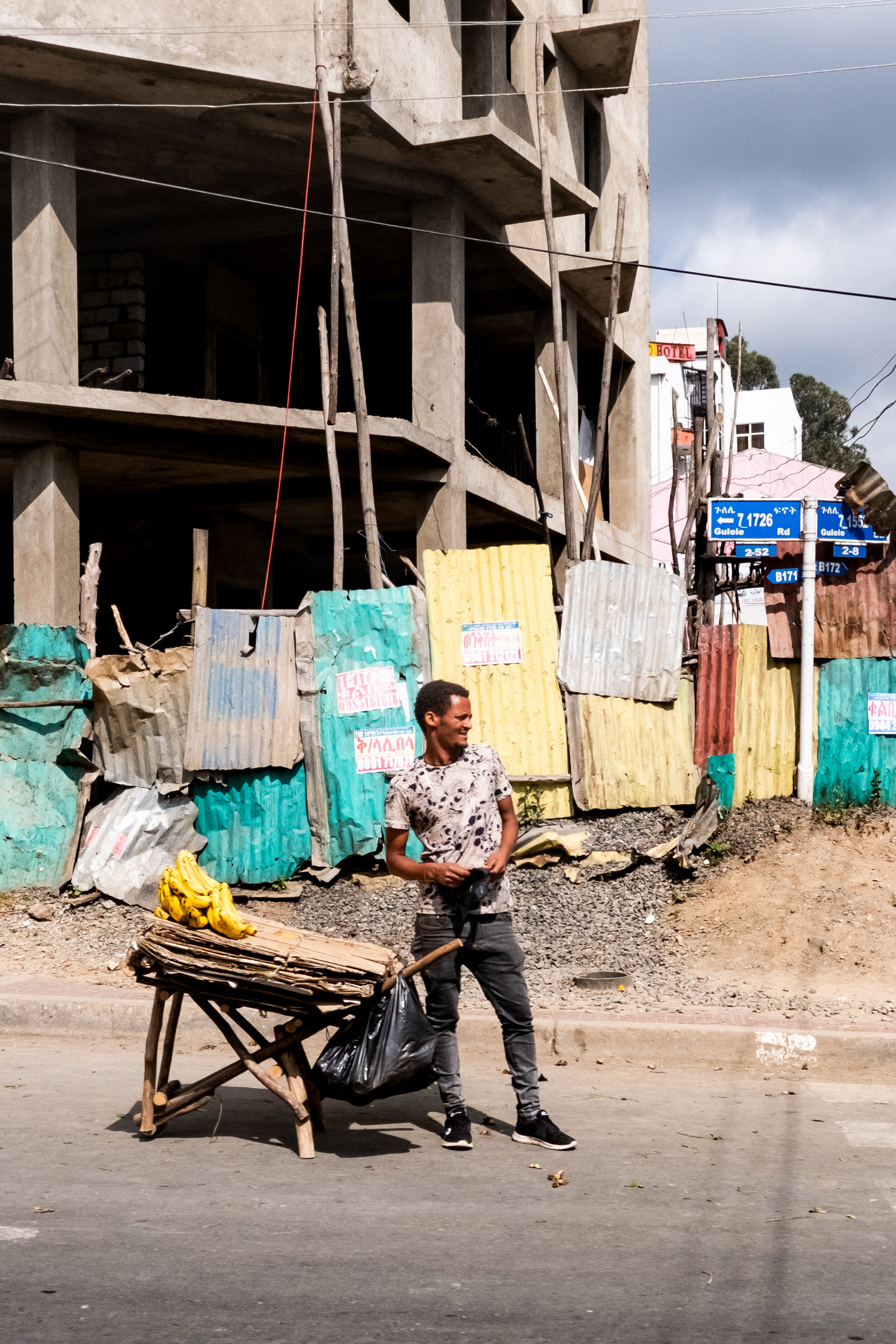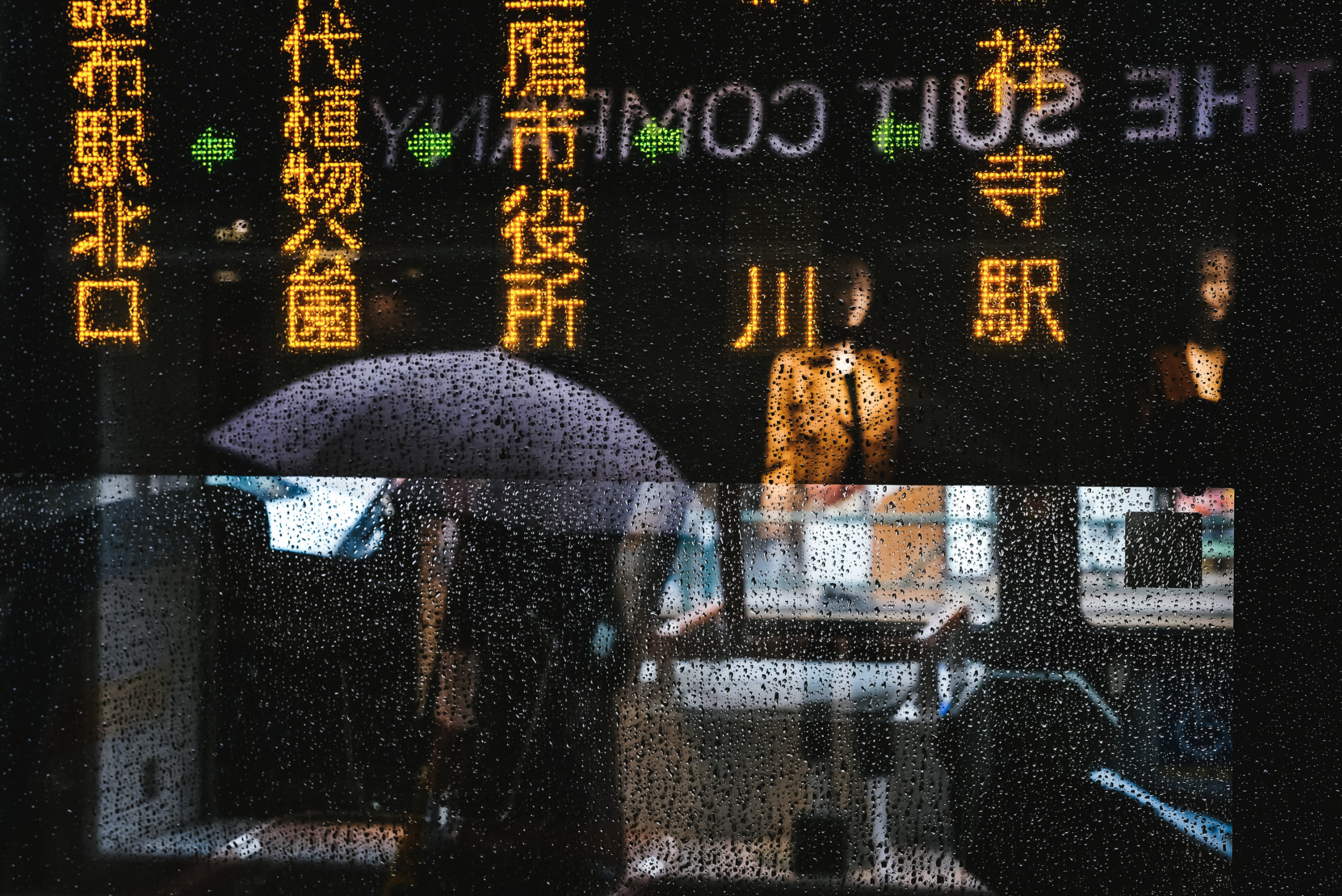There was a clear separation in the groups. Us, the travelers, guides, and hired drivers slathering chocolate spread on thin slices of white bread after an early morning hike back to basecamp. Them, the gatekeepers of Erta Ale's roads and trails - Afar tribesmen gathered in clusters just meters away, self-segregated by an apparent social hierarchy.
Like so many times before, the dilemma of experiential travel presented itself. I questioned my place, our place as tourists. I questioned my intentions as a portrait photographer and the appropriateness of making images as a guest in someone else’s space, their home, their place of work. I also questioned why I was in Ethiopia in the first place. I didn’t really have an answer to either question.
The gentlemen enjoyed their conversation nearby. Even in the early morning, their vocal tones were jovial. I wanted to make photographs of the men who paid no mind to the tourists on their land. I wanted to be respectful, to not intrude. I wanted to continue to reinforce my belief that we should all be givers instead of takers. I wanted to avoid photographing solely for personal interests as I so often do. I wanted to interact with the tribesman, experience Ethiopia (as much as a short-term tourist can) in ways that weren’t strictly observational. I was conflicted.
I had some spare Instax film with me and knew that it would only take a few minutes to make a portrait for anyone who wanted one. The small photos could easily be used for Ethiopia’s mandatory national identification cards or, just to have. Offering Polaroids was, at the moment, the only way I could justify my decision to approach the Afar men standing nearby. Other than a smile, it was the only thing I had to offer.
I noticed several elders puffing heartily on cigarettes. Smokers tend to gravitate towards one another. Here, along the Ethiopia-Eritrea border, I hoped that this generalization held true. I wrangled a smoke from a crumpled pack of American Spirits crammed in the front pouch of my rucksack. I let the stick dangle from the corner of my mouth and decided to approach the men.
I asked for a match. To my delight, I was greeted with smiles and brought into the fringes of the circle, into the fold. There were matches for me as well as a language barrier, but our relaxed dispositions and curiosity for each other served as the real introduction.
We had a smoke or two and a motion-filled conversation about the state of my tennis shoes. In my periphery, I noticed that a translator from my tour group had shuffled over. He began translating without being asked - a gesture for which I was grateful. With his help, I related that I was able to make a portrait for anyone who wanted one.
At first, there were no takers. But after a bit of coaxing by his fellow tribesmen, an elder stepped forward. We moved to the side and the gentleman stood stoically for his portrait to be taken. Minutes later, he held the small sheet of film and others pressed close to see it. Soon, the rest of the men arranged themselves into a small line, each ready to pose.
After photographing the tribal elders and the more eager members of the group, I mentioned (through translation) that I had few film sheets left. A timid teen stepped forward and then, almost immediately, popped off into a lean-to shelter covered by a tattered tarp nearby. He returned donning a piece of dusty fabric that would serve as his makeshift necktie. I felt honored to photograph the lad and appreciated the thought he put into his time, albeit a short one, behind the camera.
After the experience, I am left wondering what place, if any, a photographer has in situations like this. I wonder if my disposition lets others know that I mean no them harm. I question my intentions and wonder if interactions like this one in northern Ethiopia leave the world a better place or erode it. I don’t have answers to these questions. Regardless, I was honored to spend a few morning moments with the men of Afar.



















































